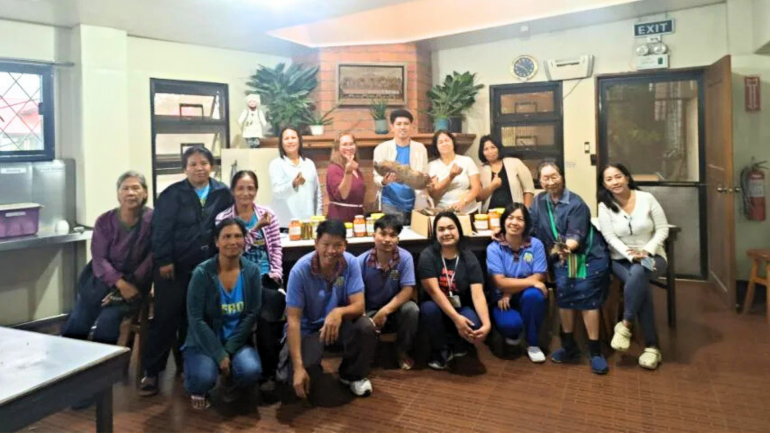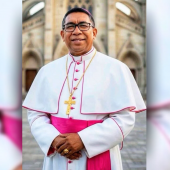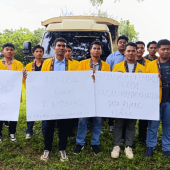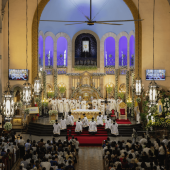Nuns train Filipino women in vegetable processing, preservation

The members of the Congregation of Our Lady of Charity of the Good Shepherd have trained mothers in their adopted communities in processing vegetables into pickles.
Mothers from Lobo, a coastal town in Batangas, more than 140 kilometers south of Manila, have trained in processing chayote, radish, water spinach, and carrots into pickles at the Mountain Maid Training and Development Foundation in the Good Shepherd Compound in Baguio City, the country’s summer capital.
Joined by two staff members from a television network foundation, the mothers have also trained on making dried fish gourmet, more popularly known in the Philippines as tuyo gourmet, at the kitchen of the nuns in Baguio from May 28 to 30.
The participants have also been trained in making sesame brittles. The training was aimed at helping further develop the participants’ food catering livelihood and expanding their income-generating endeavors.
The resource persons taught the participants the science and art of making pickles, proper food handling, labeling, sterilizing, and sealing.
The participants carry the brand name “RIDGE 2 REEF Lobo Food Products” in honor of the mountains and the sea of Lobo.
In their product label, they state, “Your purchase helps our Earth Warriors’ livelihood and their mission of protecting the Verde Island Passage.”
The Verde Island Passage in Lobo is being threatened by rising sea levels, contamination from oil tankers, cargo ships, and commercial vessels, and the destruction of scuba diving sites.
The passage is a strait separating the islands of Luzon and Mindoro and connecting the West Philippine Sea with the Tayabas Bay and the Sibuyan Sea.
The nuns and lay partners have expressed joy over the transfer of knowledge and skill in vegetable processing and preservation to the participants.
They prayed that the participants would share their knowledge and skills with their families and the communities in Lobo.
Radio Veritas Asia (RVA), a media platform of the Catholic Church, aims to share Christ. RVA started in 1969 as a continental Catholic radio station to serve Asian countries in their respective local language, thus earning the tag “the Voice of Asian Christianity.” Responding to the emerging context, RVA embraced media platforms to connect with the global Asian audience via its 21 language websites and various social media platforms.














